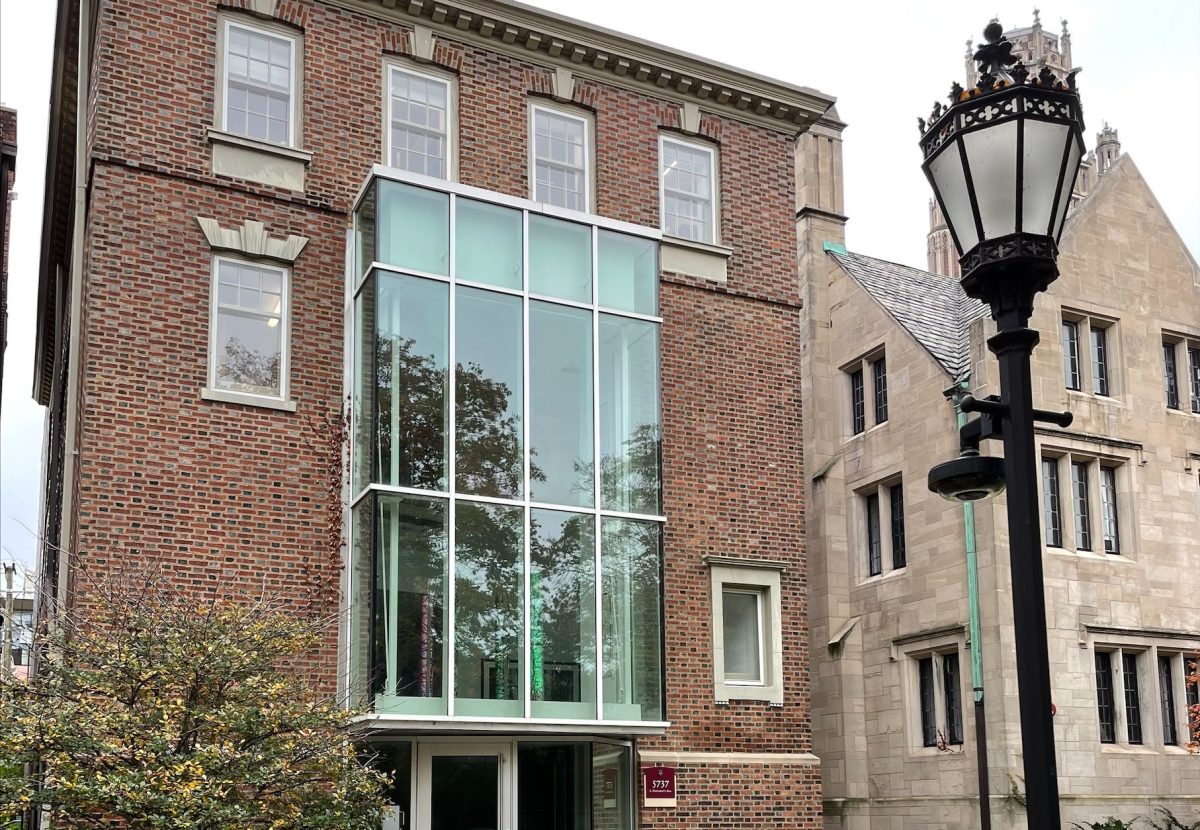The Institute on the Formation of Knowledge (IFK) launched the McKeon Center on October 12. Inspired by the late UChicago philosopher, classicist, and human rights advocate Richard McKeon, the Center aims to expand on the legacy of McKeon’s work with a new minor, faculty research and course development grants, a biennial scholarly seminar, and public conversation series.
The Center will operate as an offshoot of the IFK, which works to promote cross-disciplinary engagement by bringing together faculty from different schools and departments to conduct joint research and teach classes together.
Executive Director of the Center Shadi Bartsch-Zimmer told The Maroon that the Center would seek to continue the work McKeon was most known for. “Just as McKeon himself did, the Center exemplifies and brings into practical existence some of the issues that have always been central to the UChicago mission,” Bartsch-Zimmer said.
McKeon was not only an influential academic but also acted on his intellectual values. He was a fierce champion of intellectual pluralism and an instrumental figure in the development of the United Nations’s Universal Declaration of Human Rights, which spelled out the rights of all human beings and laid the foundations for international human rights law. “Sometimes I think of McKeon as the University of Chicago on two legs,” Bartsch-Zimmer joked at the Center’s October 12 launch event.
As Dean of the Humanities, McKeon worked hand in hand with former University chancellor Robert Maynard Hutchins on the Core and advocated for a more central role for the humanities in the University. He argued that humanistic knowledge could be a tool for solving real-world conflicts.
The Center’s fundamental aim, in alignment with McKeon’s vision, is to revitalize the humanities and give them purpose, Bartsch-Zimmer explained.
“We think that the humanities have been unjustly shunned to the side in the grand scheme of departments and divisions. They are far more relevant to scientific advancement than people understand,” she said.
With a $10 million grant from David Bernick, a student of McKeon and renowned trial lawyer, the Center aims to convince the University of just that. “We want to give away as much as we can for the greater good of the undergraduates in the University,” Bartsch-Zimmer said.
McKeon’s investigations into the systems of knowledge organization will serve as the foundations of the Center’s academic pursuits.
“Our questions will be new, but they’ll be based upon McKeon’s concerns,” Bartsch-Zimmer said.
McKeon’s concerns included the ways that different cultures and philosophical systems interact with each other, as well as the relationship between a democracy and speech. To tackle these issues, the Center will provide research grants to faculty and invite undergraduates to apply for research fellowships, through which they can assist professors with their research.
Through cross-listing, the Center will offer a program of courses in deliberative rhetoric, democracy, human rights, and pluralism.
The Center also hopes to develop an interdisciplinary minor with a focus on the relationships between these subjects. The minor would guide students in identifying, asking, and answering questions across the humanities and social sciences that have a direct impact on human welfare. Related internship opportunities in public policy and civic engagement would also, Bartsch-Zimmer hopes, be available to students enrolled in the minor.
“[The University is] missing a department where we talk about the most important means to a democracy, and that is through representation and speech,” Bartsch-Zimmer said.
At some point in history, Bartsch-Zimmer explained, philosophy decided to distance itself from rhetoric, arguing that it distracted from the pursuit of truth; the Center seeks to remedy that. “For McKeon, rhetoric is philosophy put into action,” she said.
Twice a year, the Center will host the McKeon Minute, an unscripted hour-long conversation between two high profile public figures with different perspectives, with the goal of modeling open dialogue. Bartsch-Zimmer said the Center plans on having undergraduate students play a role in selecting the speakers. Until she figures out specifics on undergraduate involvement, Bartsch-Zimmer encourages students to come and chat at the center, located in the IFK.
To formally launch the Center, the IFK hosted a welcome event featuring a conversation between professor of international law Tom Ginsburg and Special Rapporteur to the United Nations Fionnuala Ní Aoláin. Their discussion flowed from the universal ideals of international law to Ní Aoláin’s on-the-ground work in countries that are regular violators of human rights. In a nod to McKeon, Ni Aolin described her routine use of persuasive rhetoric to convince the leaders of these countries to allow her to write reports on them. The talk concluded with a discussion of the Israel-Palestine conflict.
“This is the University of Chicago; we don’t shy away from difficult topics. We’re going to talk about affirmative action; we’re going to talk about abortion; we’re going to talk about Israel-Palestine,” Ginsburg told The Maroon.









